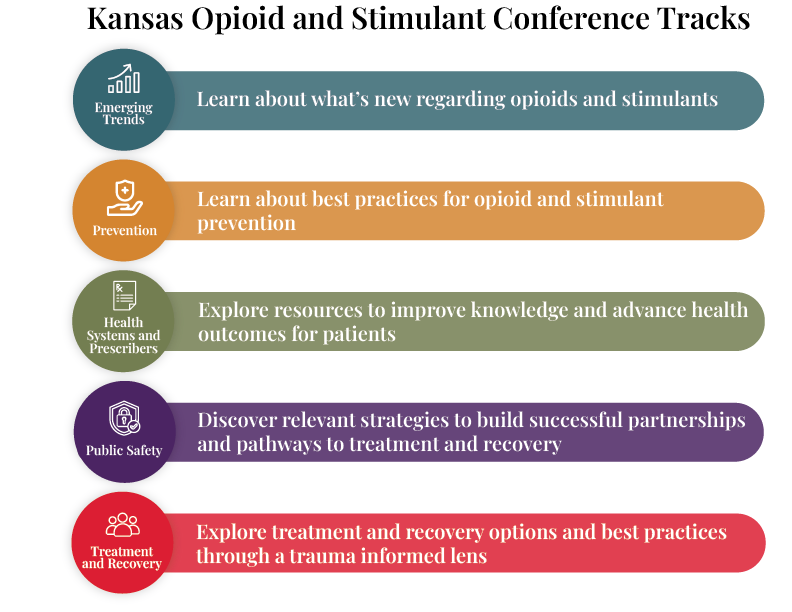
The presentation proposals submission period is now closed. We look forward to you joining the 7th Annual Kansas Opioid and Stimulant Conference on November 28, 2023, at the Hyatt Regency in Wichita, Kansas.
DCCCA invites proposals that –
- Are evidence-based or supported by research
- Promote audience discussion and engagement
- Reflect cutting-edge content to address the prescription drug and illicit opioid/stimulant epidemic
- Share new innovations that can be replicated in communities
- Use a variety of presentation techniques to enhance learning
Presentation/workshop proposals should fit into one of five (5) session tracks –

The descriptors for each track are not comprehensive, but rather are a sampling of possible presentation topics. Additional presentation topics may be submitted; however, they should relate to the prescription drug and illicit opioid and stimulant epidemic.
- Emerging Trends
Drug use trends, new data, and impacted populations (youth, young adults, veterans/service members, older adults, or minority groups) are all considerations for this category. Specific topics may include harm reduction, fentanyl, xylazine, poly-substance use, and other relevant issues. - Prevention
Highlighting effective prevention programs, policies, or practices (universal, selected, indicated) that have shown successful outcomes, including increasing public awareness through social media and other marketing techniques. - Health Systems and Prescribers
Providing resources to help improve knowledge of prescribing practices and laws to improve health outcomes for patients. Focusing on pain management and controlled substance prescribing, prescribing guidelines, opioid pharmacology, and patient conversations are all applicable. - Public Safety and First Responders
Information on building successful partnerships between law enforcement and public health agencies to address opioid/stimulant misuse, best practices in enforcement and referrals, and non-arrest pathways to treatment and recovery. - Treatment and Recovery
Defining recovery and recovery-oriented systems of care, peer support through a trauma-informed lens, treatment planning, specialized treatment for opioids, stimulants, and synthetic drugs including medically assisted treatment (MAT) opportunities.
For more information, or if you have questions, please contact Chrissy Mayer, cmayer@dccca.org.